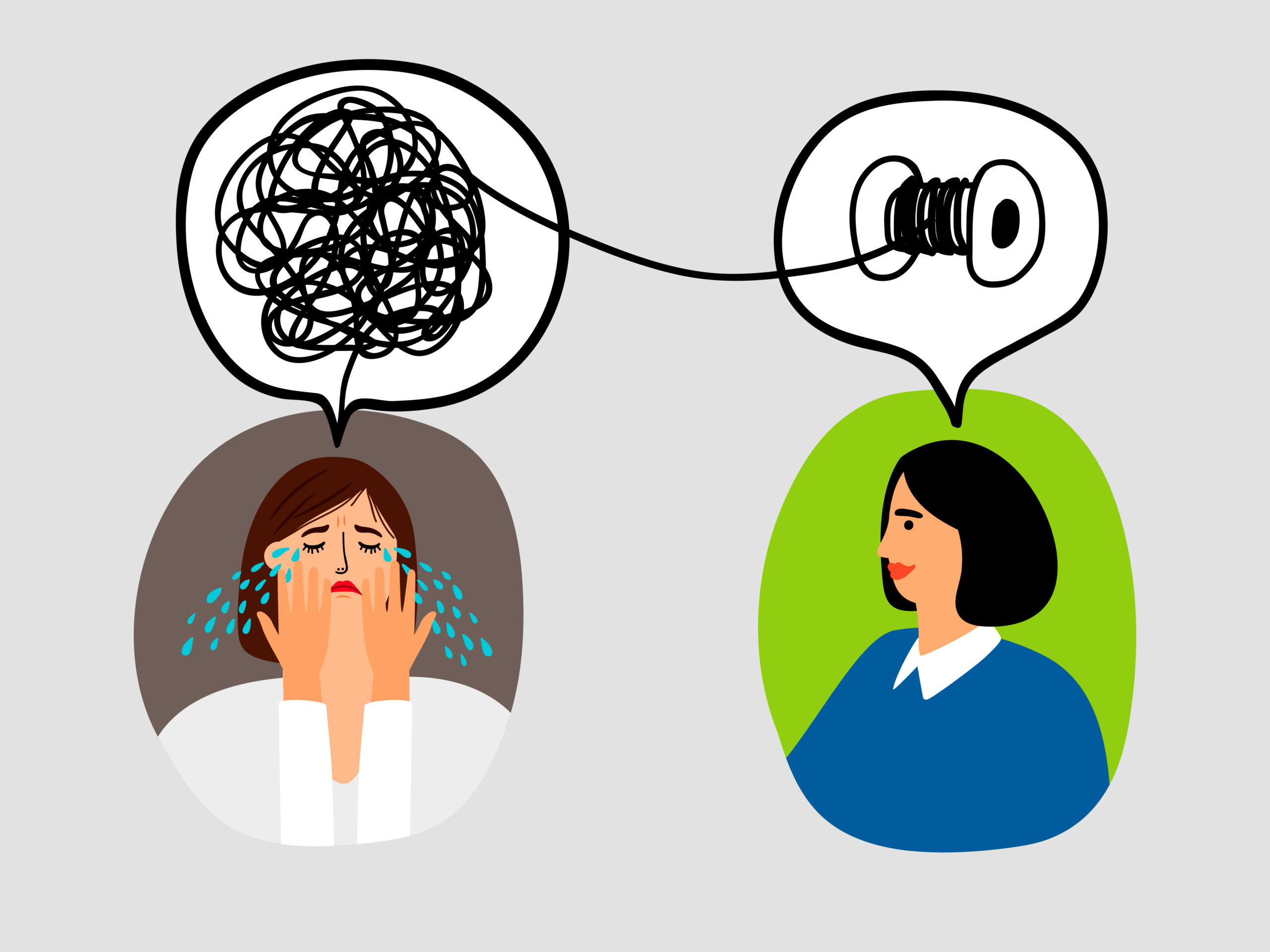Secret Insights Into Mental Treatment for Teenage Minds: Nurturing Emotional Intelligence
Mental therapy for teenagers provides special challenges and chances. Teenagers experience significant emotional complexity as their brains develop. Supporting emotional intelligence ends up being necessary in this situation. Therapeutic methods like Cognitive Behavior modification and Dialectical Behavior modification deal valuable devices. These methods not only foster self-awareness but additionally boost compassion. Understanding exactly how these approaches effect personal development can reveal essential insights right into the mental wellness of young minds. What lies at the intersection of therapy and psychological development?
Comprehending the Adolescent Mind: Development and Emotional Complexity
The teen brain is a dynamic landscape, defined by significant developing adjustments that shape psychological reactions and actions. Throughout adolescence, the prefrontal cortex, in charge of decision-making and impulse control, undergoes important growth. Simultaneously, the limbic system, which governs emotions, becomes a lot more energetic, causing enhanced emotional experiences. This discrepancy can lead to intense mood swings and spontaneous activities, as the emotional center usually eclipses sensible idea.
Neurotransmitters like dopamine play an essential duty in this stage, affecting enjoyment and reward-seeking behaviors. As teenagers browse social interactions and identity formation, their brains are wired to focus on peer approval and emotional experiences. This duration of fast development is important for developing strength and adaptability, although it can additionally lead to difficulties in mental health. Comprehending these changes is crucial for moms and dads, instructors, and mental health and wellness professionals as they look for to support teens via this complicated developing phase.
The Relevance of Emotional Intelligence in Adolescents
Identifying the significance of psychological intelligence during adolescence is crucial, as it lays the foundation for efficient interaction, compassion, and self-regulation. Teens are steering a complicated developmental phase defined by changing feelings and social characteristics. Individual Therapy Toronto. Emotional intelligence equips them with the capability to understand and handle their sensations while additionally identifying and reacting to the feelings of others. This skillset fosters much healthier partnerships, minimizes problem, and improves cooperation amongst peers
In addition, emotional knowledge supports scholastic success by promoting durability and adaptability in the face of difficulties. As teens discover to deal with stress and setbacks, they develop a more powerful sense of self-respect and identification. Growing psychological intelligence during these developmental years can result in long-lasting advantages, including enhanced mental health and wellness. Ultimately, focusing on emotional knowledge in teenagers is vital for their general development and future social effectiveness.
Effective Restorative Techniques for Teenagers
While different restorative methods exist, picking one of the most effective approaches for teenagers calls for an understanding of their distinct developmental requirements. Cognitive Behavioral Therapy (CBT) is typically preferred for its structured approach, assisting adolescents identify and customize unfavorable idea patterns. Dialectical Behavior Modification (DBT) is another effective technique, especially for those having problem with emotional regulation, as it combines individual treatment with skills training in mindfulness and interpersonal efficiency.
Additionally, art and play therapies give imaginative outlets for self-expression, making treatment much more easily accessible for those that may discover spoken interaction testing. Individual Teen Counselling. Team treatment settings can also facilitate peer connections, allowing teens to share experiences in a helpful environment. Ultimately, incorporating family therapy can enhance interaction and understanding within the family, attending to dynamics that may contribute to the teenager's psychological struggles. Ultimately, the effectiveness of these approaches depends on their adaptability to private circumstances and needs
Structure Strength Via Psychological Treatment
Structure durability via mental treatment is crucial for young adults dealing with various life difficulties, as it outfits them with dealing strategies and psychological tools needed to guide via difficulty. Psychological treatment provides a structured setting where teenagers can explore their sensations and thoughts, promoting a much deeper understanding of themselves. Techniques such as cognitive-behavioral treatment (CBT) motivate teenagers to determine negative idea patterns and replace them with positive ones, fostering a resilient way of thinking. Furthermore, mindfulness techniques integrated into treatment can aid teens remain grounded during stressful circumstances, boosting their ability to deal. The skills learned with mental therapy empower teenagers to approach obstacles with self-confidence, allowing them to get better from troubles. As they create durability, they end up being much more proficient at handling future problems, ultimately adding to their emotional well-being and personal development. This foundation of durability is important for maneuvering the complexities of teenage years and planning for adulthood.
Motivating Open Communication and Supportive Relationships
Exactly how can open communication and encouraging relationships more information enhance a young adult's mental well-being? Establishing a society of open discussion fosters depend on and psychological safety and security, making it possible for teens to share their ideas and feelings without anxiety of judgment (Individual Therapy Toronto). This support assists them browse the intricacies of teenage years, promoting strength against stress and anxiety and stress and anxiety
Supportive relationships, whether with coaches, parents, or peers, play an essential duty in a young adult's development. They offer a network of inspiration and understanding, which is crucial during tough times. When young adults feel listened to and valued, they are a lot more most likely to develop healthy and balanced coping systems and emotional knowledge.
Urging open communication also empowers teenagers to express their needs and seek assistance when essential. This proactive method can greatly reduce feelings of seclusion and despair. On the whole, supporting these links outfits teenagers with fundamental tools for psychological law and personal growth, inevitably enhancing their psychological wellness.
Regularly Asked Concerns
Just How Can Parents Determine When Their Teen Requirements Treatment?
Moms and dads can identify their teenager's requirement for therapy by Get the facts observing significant changes in actions, mood variations, withdrawal from social tasks, declining academic performance, raised irritation, and expressions of hopelessness or anxiety that linger with time.
What Duty Does Social Media Site Play in Adolescent Mental Wellness?
Social media site considerably influences adolescent mental wellness by shaping self-worth, cultivating links, and subjecting individuals to cyberbullying. Its effect can be both positive and unfavorable, depending on use patterns and the nature of on-line interactions.
Are There Certain Treatments Much Better Fit for Girls or children?

How Can Schools Support Mental Wellness Initiatives for Students?
Schools can support mental health and wellness campaigns by applying therapy services, promoting social-emotional discovering programs, giving psychological wellness resources, fostering a helpful atmosphere, and supplying workshops that inform students on dealing strategies and emotional resilience.

What Are Typical Misconceptions About Teenage Treatment?
Typical misunderstandings regarding teen treatment include the idea that it is only for serious issues, that it suggests weak point, or that teens do not have the capacity to involve. These misunderstandings can impede access to vital psychological health and wellness assistance.
Mental therapy for teens offers unique obstacles and chances. Therapeutic strategies like Cognitive Behavior Treatment and Dialectical Actions Treatment offer beneficial devices. Furthermore, art and play treatments provide imaginative electrical outlets for self-expression, making therapy a lot more accessible for those that might locate verbal communication challenging. Integrating household treatment can enhance communication and understanding within the family members system, attending to characteristics that might contribute to the teen's psychological struggles. Structure resilience through psychological treatment is important for teens dealing with different life obstacles, as it outfits them with dealing strategies and psychological tools required to steer through difficulty.